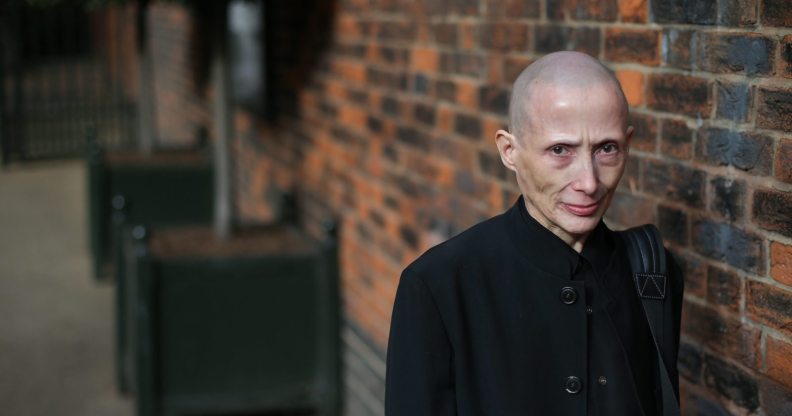‘X’ gender markers in passports would be ‘extremely difficult’, government argues in UK’s top court

Elan-Cane first applied for a non-gendered passport in 1995. (DANIEL LEAL-OLIVAS/AFP/Getty)
Introducing ‘X’ gender markers on British passports is a “sensitive and extremely difficult moral, ethical and legal issue”, the Supreme Court heard Tuesday (13 July).
The government does not want to bring in ‘X’ gender markers in passports because it would be a “major change” with “some significant [financial] cost and the number of people benefitting is very small”, Sir James Eadie QC, representing the Home Office, argued today.
The case is the first transgender civil rights case to be heard by the UK Supreme Court. It was brought by Christie Elan-Cane, a non-gendered person who first asked the government for a passport without an ‘M’ or ‘F’ gender marker in 1995.
Elan-Cane, whose pronouns are per/per/perself, has campaigned for almost 30 years to achieve legal and social recognition. Yesterday, per lawyer told the Supreme Court that there is “nothing controversial” about having a passport where a person’s sex is unspecified.
On the second day of the two-day hearing, justices heard from Eadie that bringing in ‘X’ gender markers on passports would “open the door” to legal recognition for non-binary people.
“At the moment there is no specific and express recognition in English law of this status,” Eadie said. “Once you open the door to some part of it, through royal prerogative, we know what will come. It’s necessary to think through the ramifications.”
Eadie added that it “isn’t a leap” to say that this case could impact pension rights and prison policy in the UK. “We’d have to grapple with how all those work,” he said. “It’s a major change that’s being proposed. These are extremely difficult issues. The scale of the issues is important.”
He added that Elan-Cane’s case had been “deliberately confined to ‘X’ on a passport to avoid all of the issues associated with providing recognition” to people who are not male or female.
The Home Office’s case is that ‘X’ gender markers are “not an isolated issue” and the government needs more time to “consider the consequences and ramifications” of recognising non-binary genders in a legal system that is configured around male and female genders only.
Judges questioned Eadie on his argument that the government needed more time by pointing out that the government previously argued it needed more time to think through the ramifications of introducing same-sex marriage legislation, which Eadie agreed had been a “terrible argument”.
The trans population of the UK is estimated to consist of 200,000 to 500,000 people, of which around half are thought to be non-binary trans people.
While Elan-Cane’s case is for an ‘X’ gender marker to denote an unspecified gender, both parties have acknowledged that, depending on how the change is implemented, there might be non-binary, intersex and binary trans people interested in an ‘X’ gender marker, as well as cisgender people.
The judgment has been reserved until a later date.

